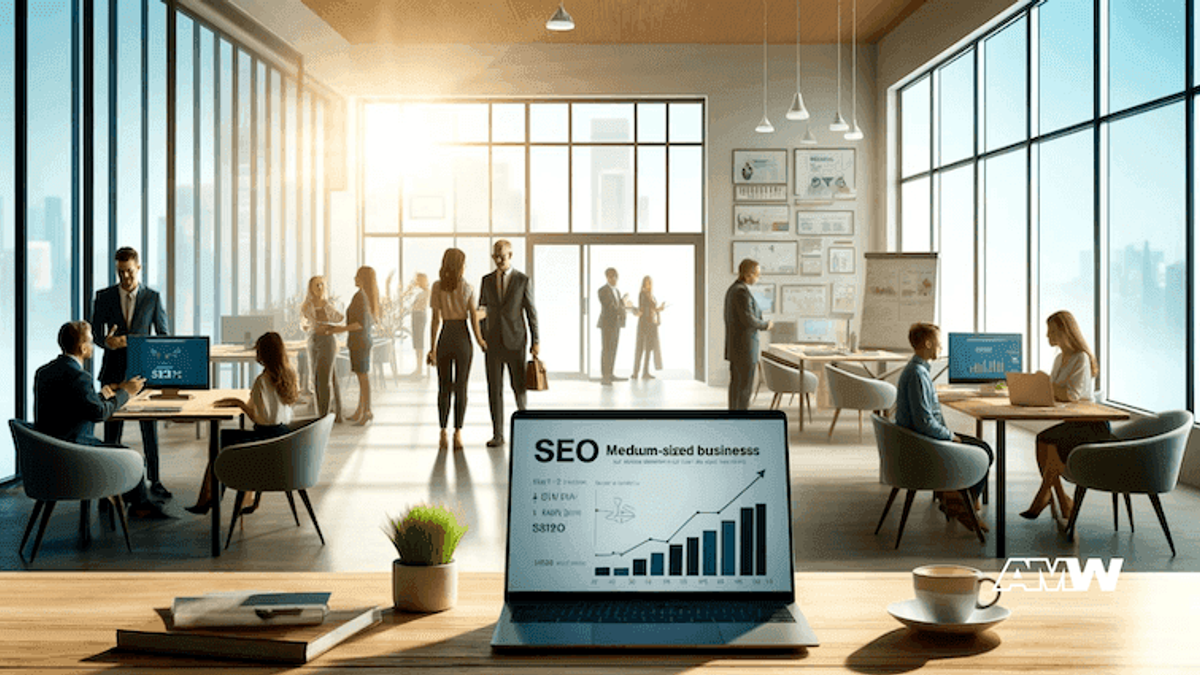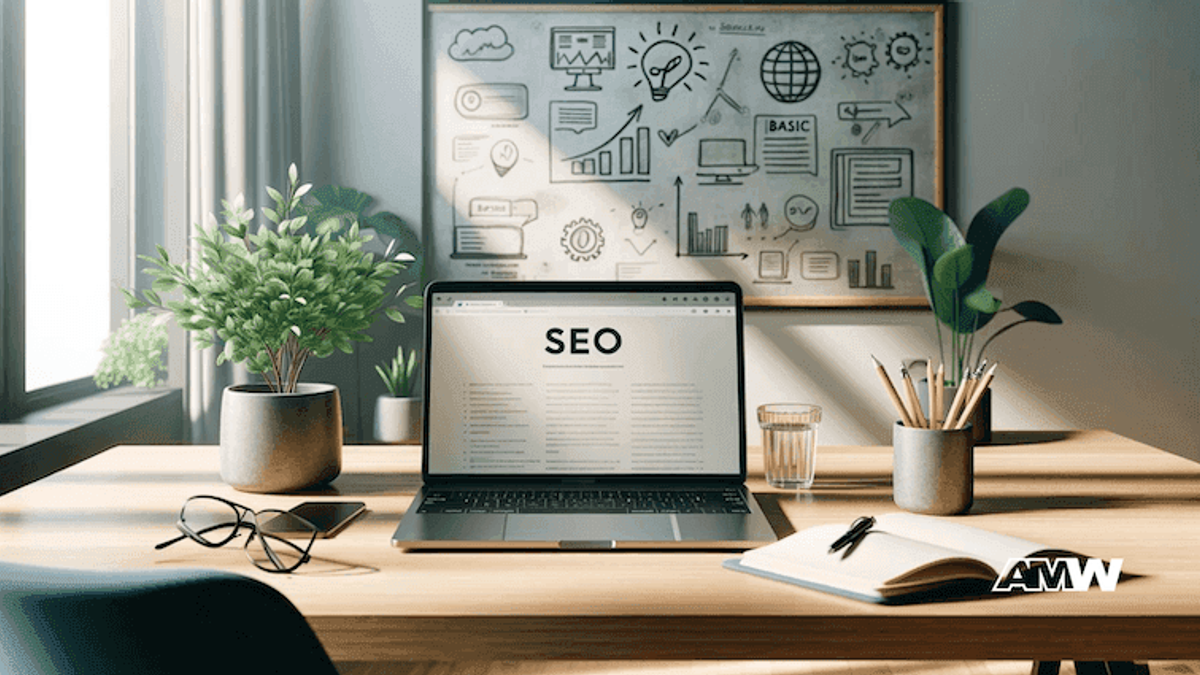Is SEO Worth It? A Guide to the Real Benefits of SEO

From its early days of keyword stuffing and spammy links, SEO has become a sophisticated practice that helps businesses improve search engine rankings and attract qualified traffic.
Quick Summary
SEO has evolved from basic techniques to a sophisticated practice vital for enhancing search engine visibility, thereby attracting qualified traffic. Current strategies emphasize creating valuable content, optimizing for user experience, and leveraging AI and local SEO. The benefits include increased organic traffic, cost-effectiveness compared to paid advertising, and improved brand credibility. Ultimately, SEO is essential for businesses seeking long-term growth, making it a worthwhile investm
SEO experts' tactics to enhance organic search rankings have also transformed as search engines update their algorithms.
With these changes, business owners might wonder, "Is SEO worth it?"
Ready to Grow Your Business?
Get a custom strategy tailored to your goals.
This is a crucial question, as SEO investment requires time and financial resources. Understanding the current state of SEO and its benefits can help you determine whether it's a viable marketing strategy for your business.
This guide aims to provide insights into the true value of SEO today, highlighting key trends, benefits, and considerations for various types of businesses.
Understanding SEO

SEO involves optimizing a site to improve its ranking and increase the quality of website traffic from organic search. The primary components of SEO include:
- On-page SEO: Optimizes individual web pages, including keyword research, meta tags, and valuable content creation.
- Off-page SEO: Focuses on building backlinks and enhancing the website's reputation and authority.
- Technical SEOensures that the site meets the technical requirements of modern search engines, including mobile friendliness, fast load times, and secure connections (HTTPS).
Technical SEO ensures that the site meets the technical requirements of modern search engines, including mobile friendliness, fast load times, and secure connections (HTTPS).
- Local SEO: Targets local search queries to attract customers from specific geographical areas, which is crucial for local businesses.
How SEO Has Changed Over the Years

The SEO industry has witnessed significant transformations over the past decades.
Early SEO tactics relied heavily on manipulating search engines with keyword stuffing and acquiring as many backlinks as possible, often through spammy links.
However, these old SEO techniques became obsolete as search engine algorithms advanced.
Today, SEO efforts focus on creating valuable content that meets user intent and enhances the overall user experience. Mobile and voice search, as well as artificial intelligence, has further shaped SEO strategies.
SEO requires a holistic approach integrating content marketing, social media advertising, and ongoing optimization to achieve and maintain high organic search rankings.
Key Trends in SEO
- User Experience (UX) and Core Web Vitals: Google's emphasis on user experience, measured through Core Web Vitals, continues to grow. Websites that offer fast, responsive, and visually stable experiences are more likely to rank better in Google search results.
- AI and Machine Learning: Advanced algorithms like Google's RankBrain use AI to understand search queries better and deliver more relevant results. SEO tactics now need to consider AI-driven insights to stay competitive.
- Voice Search Optimization: With voice assistant usage, optimizing for voice search has become crucial, focusing on natural language and long-tail keywords.
- E-A-T (Expertise, Authoritativeness, Trustworthiness): Google values high-quality content from credible sources. Establishing brand authority through valuable content and legitimate backlinks is crucial.
- Local SEO and Local Intent: Optimizing for local SEO is more important than ever as more users perform searches with local intent. This includes managing online reviews, local listings, and localized content.
- Integration with Social Media and Video Content: Social media signals and video content, like those on YouTube, play a significant role in SEO. Leveraging these platforms can enhance your overall SEO strategy.
- Ongoing Optimization: SEO requires continuous monitoring, analyzing, and adjusting strategies to keep up with algorithm changes and competitive dynamics.
This post will delve into these aspects, providing a comprehensive guide to help you evaluate and optimize your SEO practices effectively.
Whether you're a marketing manager, a business owner, or considering hiring an SEO company, this guide will help you understand the full scope of SEO's potential benefits.
The Real Benefits of SEO

Increased Organic Traffic
One of the benefits of SEO is increased traffic to your website.
Organic traffic refers to visitors discovering your site through unpaid searches on search engines.
This type of traffic is crucial because it consists of qualified traffic—individuals actively searching for your products or services.
SEO drives quality traffic to websites by optimizing them for relevant search queries.
Through keyword research and strategic placement of those keywords within your web page content, meta descriptions, and tags, SEO helps your site appear higher in search engine results. Higher visibility in results leads to more clicks and visits from potential customers. Increased website traffic can significantly boost your business's online presence and increase conversions.
Cost-Effectiveness
When comparing SEO to paid search advertising like Google Ads or Facebook advertising, SEO is often more cost-effective in the long run.
While paid SEO services and advertisements can deliver immediate results, they require continuous investment. In contrast, the benefits of SEO compound over time, making it a more sustainable and economical option.
The SEO cost typically involves an upfront investment in hiring an SEO company or SEO consultant and ongoing efforts to maintain and improve your organic search rankings. However, once your SEO strategy starts showing results, the cost per acquisition tends to decrease, delivering a better ROI than paid search advertising.
This long-term benefit makes SEO a viable strategy for businesses aiming to maximize their budget.
Enhanced User Experience

Optimizing your website is important for achieving higher search engine rankings and enhancing user experience.
Search engine optimization (SEO) entails improving different elements of your website, including site speed, mobile-friendliness, and easy navigation, all of which contribute to improved usability.
Improving the user experience is crucial because search engines like Google consider factors such as page load time and mobile responsiveness when determining search engine rankings.
By optimizing your site for these factors, you ensure that guests have a positive experience, which can lead to longer visit durations, lower bounce rates, and higher conversion rates.
SEO efforts focusing on user experience ultimately lead to higher customer satisfaction and loyalty.
Brand Credibility and Trust
SEO is crucial for establishing brand credibility and trust.
When your website appears at the top of the search, it signals to users that your business is an authority in your industry.
Establishing visibility helps to position your brand as a trustworthy source of information and products.
Moreover, effective SEO strategies involve creating valuable content that addresses the needs of your audience.
You can enhance your brand's authority and trustworthiness by providing high-quality, relevant content. This credibility attracts more visitors and encourages repeat visits and referrals, reinforcing customer loyalty.
Competitive Advantage
Having a strong SEO strategy is essential for staying ahead of your competitors. Investing in SEO provides a significant advantage over businesses relying solely on traditional marketing or with limited online visibility.
Effective SEO tactics help you understand and outperform your competitors. By analyzing their keyword rankings, backlink profiles, and content strategies, you can identify opportunities to improve your SEO efforts.
Local SEO is particularly important for local companies. Enhancing your site for local search can improve its visibility to potential customers in your area. Using location-specific keywords and ensuring accurate business information across online platforms is important. Handling online reviews is crucial for building trust and attracting local customers.
Responding to reviews is a commitment to customer satisfaction and can provide a competitive edge.
SEO is a worthwhile investment, from increasing organic traffic and cost-effectiveness to improving user experience, building brand credibility, and gaining a competitive advantage. Understanding this can guide you to better allocate your marketing dollars and optimize your online marketing strategies.
SEO for Different Types of Businesses

Small Businesses
Search engine optimization (SEO) benefits small businesses that can drive growth and competitiveness.
By leveraging SEO, small enterprises can achieve higher search engine rankings, increase their visibility in Google search results, and attract qualified traffic.
Benefits of SEO for Small Enterprises:
- Cost-Effectiveness: SEO is more cost-effective than traditional and paid search advertising, like Google ads. Small businesses can achieve significant growth with a smaller budget by focusing on targeted SEO tactics.
- Increased Visibility: With practical SEO efforts, small businesses can rank higher in search, making it easier for customers to find them. This visibility can drive more traffic to their websites.
- Local SEO: Focusing on local search optimization is essential for small businesses that depend on local customers. Local SEO strategies, such as managing online reviews, optimizing Google My Business listings, and targeting local intent keywords, help attract customers from specific geographic areas.
Cost Considerations and Affordable Strategies:
While SEO can be more affordable than other marketing strategies, it still requires a budget for optimal results. Small businesses should consider the following cost-effective strategies:
- DIY SEO: Small business owners can manage their SEO efforts by learning basic SEO techniques and using free or affordable tools.
Ready to Grow Your Business?
Get a custom strategy tailored to your goals.
- Hiring an SEO Consultant: For businesses that need expert guidance, hiring an SEO consultant for a limited period can help set up an effective SEO strategy.
- Local SEO Focus: Prioritizing local SEO efforts can yield significant results without extensive investment.
E-Commerce

For e-commerce businesses, SEO is essential for increasing visibility in a competitive market.
Effective SEO strategies can position online stores prominently in search, leading to higher organic search rankings and more relevant traffic.
Importance of SEO for Online Stores:
- Increased Sales: Higher visibility in search results translates to more clicks and higher chances of conversions. By optimizing product pages, meta descriptions, and other on-page elements, e-commerce sites can attract qualified traffic that is ready to make purchases.
- Enhanced User Experience: SEO involves optimizing the website, improving load times, mobile responsiveness, and user navigation. This improved experience can lead to higher satisfaction and repeat purchases.
- Competitive Edge: In the crowded e-commerce space, having a strong SEO strategy gives businesses an edge over competitors. An optimized website can rank higher than competitors who neglect SEO, capturing more market share.
Driving Sales Through Search Visibility:
- Product Page Optimization: Using targeted keywords, high-quality images, and detailed product descriptions helps improve search engine rankings and conversion rates.
- Content Marketing: Creating content such as blogs, buying guides, and product comparisons can attract organic traffic and support the sales funnel.
- Technical SEO: Ensuring the website is technically sound, with fast load times and secure connections, enhances SEO performance and user experience.
Local Businesses
Local SEO is critical for local businesses to attract customers searching for services in their area. Effective local SEO strategies can significantly enhance a business's visibility in local search engine results.
Significance of Local SEO:
- Attracting Local Customers: Local SEO helps businesses appear in local search results, maps, and Google My Business listings, making it easier for nearby customers to find them.
- Relevance and Trust: Optimizing for local search queries builds trust and credibility among local customers. High visibility in local searches indicates that a business is relevant and reliable in its community.
- Cost-Effective Marketing: Local SEO is a cost-effective way for small businesses to compete. Businesses can attract more customers without a significant investment by targeting specific local keywords and managing online reviews.
Attracting Local Customers Through Targeted Efforts:
- Google My Business: Claiming and optimizing the Google My Business listing ensures the business appears in local map searches and receives more visibility in Google search results.
- Local Keywords: Using local keywords in website content, meta descriptions, and tags helps attract customers searching for services in specific areas.
- Online Reviews: Encouraging customers to share feedback can enhance local rankings and foster trust with potential customers.
In conclusion, SEO offers tailored benefits for different types of businesses, whether small enterprises, e-commerce stores, or local businesses.
By investing in SEO, these businesses can improve their visibility, attract more traffic, and drive growth and success.
For business owners questioning, "Is SEO worth it," understanding these specific advantages and implementing effective SEO strategies can provide a clear path to achieving their marketing goals.
Evaluating the Cost of SEO

Evaluating the costs involved is essential when considering whether SEO is worth it. The cost of SEO can vary widely based on several factors.
The understanding of these factors can assist business owners in making informed decisions regarding their SEO investments.
Factors Influencing SEO Costs
- Complexity of the Website: Your website's structure and current state significantly impact its SEO cost. A well-designed website with a solid foundation will require less upfront work than a site with technical issues and outdated SEO techniques.
- Competitive Landscape of the Industry: Industries with high competition, such as e-commerce or real estate, generally incur higher SEO costs. More effort is needed to outrank competitors and achieve top search engine rankings.
- Scope of SEO Services Required: The range of SEO services needed also influences cost. Services may include on-page SEO, off-page SEO, local SEO, technical SEO, content creation, and ongoing optimization. A comprehensive approach typically costs more but delivers better long-term results.
Budgeting for SEO

Setting a budget for SEO requires understanding typical cost ranges and aligning them with your business size and goals.
- Small Businesses: Small enterprises might spend between $500 to $2,000 per month on SEO. Focusing on local SEO and basic on-page optimizations can yield significant benefits without excessive expenditure.
- Medium Businesses: Mid-sized businesses may invest between $2,000 to $5,000 per month. This budget allows for a more extensive SEO strategy, including content marketing and link building.
- Large Businesses: Large enterprises with significant online presence might spend $5,000 to $20,000 monthly. Comprehensive SEO campaigns, including aggressive content strategies and technical SEO, are necessary to maintain and improve rankings in competitive industries.
Tips for Getting the Best Value for Your Investment
- Set Clear Goals: Define what you want to achieve with SEO, whether it's increasing website traffic, improving organic search rankings, or boosting sales.
- Choose the Right SEO Provider: Not all SEO companies offer the same level of service. Look for agencies with a track record, positive client testimonials, and transparent pricing.
- Monitor and Adjust: Monitor your SEO regularly and adjust based on performance and changing algorithms.
- DIY SEO vs. Hiring Professionals: Deciding whether to manage your own SEO or hire professionals is a crucial decision that impacts both cost and effectiveness.
Pros and Cons of DIY SEO

Benefits of Managing SEO In-House
- Cost Savings: DIY SEO can save money on paid SEO services. Business owners can implement basic SEO strategies with access to free or low-cost tools.
- Control: Managing SEO in-house gives you direct control over your SEO efforts, ensuring alignment with your business goals and priorities.
Challenges and Limitations
- Expertise and Knowledge: SEO requires specialized knowledge. With proper understanding, efforts may be effective and beneficial, leading to good search engine rankings.
- Time-Consuming: SEO involves ongoing tasks such as keyword research, content creation, and technical optimizations, which can be time-consuming for a business owner or marketing manager.
Advantages of Hiring SEO Professionals
Expertise and Experience
Ready to Grow Your Business?
Get a custom strategy tailored to your goals.
Professional SEO consultants and agencies bring extensive expertise and experience. They stay updated with the changes in search engine algorithms, ensuring your SEO strategy is always effective.
Access to Advanced Tools and Techniques
SEO companies can access advanced tools and resources that may be cost-prohibitive for individual businesses. These tools enable more in-depth analysis and efficient implementation of SEO tactics.
Focus on Core Business Activities
Hiring pros allows business owners to focus on their core activities. SEO experts handle the intricacies of SEO, allowing you to concentrate on running your business and serving your customers.
In conclusion, whether you manage SEO in-house or hire professionals depends on your specific needs, budget, and capacity.
Evaluating these factors will help you determine the best approach for your business and ensure that your investment in SEO is worth it.
Conclusion

In this blog post, we explored the question, "Is SEO worth it?" by examining the key aspects and benefits of search engine optimization (SEO).
Key Points Discussed:
- Understanding SEO: We defined SEO and its components, discussed how SEO has evolved over the years, and highlighted key trends influencing the SEO industry today.
- The Real Benefits of SEO: We delved into the numerous advantages of SEO, including increased organic traffic, cost-effectiveness, enhanced user experience, improved brand credibility and trust, and gaining a competitive edge.
- SEO for Different Types of Businesses: We examined how small businesses, e-commerce, and local businesses can benefit from tailored SEO strategies and discussed cost considerations and affordable approaches.
- Evaluating the Cost of SEO: We looked at the factors influencing SEO costs and provided budgeting tips for different business sizes, emphasizing the importance of investing wisely to get the best value.
- DIY SEO vs. Hiring Professionals: We compared the advantages and disadvantages of handling SEO in-house versus hiring professionals. We emphasized the expertise, tools, and time savings that SEO agencies and consultants provide.
Final Thoughts on the Worth of SEO:
SEO is worth the investment for most businesses, regardless of size or industry.
The evolution of search engines and search engine algorithms means that effective SEO remains crucial to any successful online marketing strategy. Improving your rankings can attract more qualified traffic, enhance your brand authority, and ultimately drive business growth.
However, assessing your business needs and goals is essential when approaching SEO.
Whether you decide to manage your SEO or hire an SEO company, ensure that your SEO is aligned with your specific needs and resources.
SEO can provide a high return on your marketing dollars, especially compared to paid search advertising.
With the right SEO strategy, you can achieve long-term visibility in Google and other search engines, attracting more customers and increasing site traffic.
In conclusion, evaluating SEO's worth involves understanding its benefits, costs, and the best approach for your business.
FAQ

Is it worth it to do SEO?
Yes, SEO is worth it. Search engine optimization (SEO) provides long-term benefits by enhancing your site's visibility in results and driving organic traffic of users actively seeking your products or services. Unlike paid search advertising, the effects of SEO are lasting, often providing a higher return on investment over time.
Effective SEO can improve your search engine rankings, increase brand awareness and customer trust, and ultimately, increase sales and revenue.
How much should a small business pay for SEO?
SEO costs for small businesses typically range from $500 to $2,000 per month. Factors influencing this cost include:
- The complexity of your website.
- The competitiveness of your industry.
- The scope of SEO services required.
Small businesses should focus on local SEO and basic on-page optimizations to maximize their budgets. It's crucial to select SEO agencies that offer transparent pricing and tailored services that align with their specific needs and goals.
Can a business survive without SEO?
While a business can survive without SEO, it can be significantly more challenging.
Search engine optimization is critical in modern digital marketing strategies, helping companies to attract qualified traffic and compete online.
Without SEO, a business may rely heavily on paid search ads and other forms of online marketing, which can be more costly and less sustainable in the long run. SEO helps establish a robust online presence, improving visibility and credibility in search engines.
Is SEO still relevant?
Yes, SEO is still relevant. The SEO industry continues to evolve with changing search engine algorithms, user behavior, and technological advancements.
Key trends such as user experience optimization, mobile-first indexing, voice search, and AI-driven search are shaping the future of SEO.
By staying updated with these trends and adapting your SEO tactics accordingly, you can ensure that your SEO efforts remain effective and deliver long-term benefits.
Is SEO worth it for small businesses?
SEO is worth it for small businesses. SEO helps small enterprises compete with larger companies by improving their visibility in local search and attracting relevant traffic. It can drive significant website traffic without the high costs associated with traditional marketing.
Small businesses can effectively target their immediate market, increase foot traffic, and boost sales by focusing on local intent and optimizing for local SEO.
Should I pay someone to do my SEO?
Hiring a professional depends on your business goals, budget, and in-house expertise. Hiring an SEO agency, SEO agency, or SEO provider can save time and provide expertise that might be lacking internally.
Professionals offer a comprehensive approach, utilizing advanced tools and proven seoSEO techniques to improve your organic search rankings.
Consider your marketing dollars and the potential ROI when investing in professional SEO services.
Is SEO effective?
Yes, SEO is highly effective. Numerous case studies and examples show businesses achieving significant growth through strategic SEO efforts.
For instance, companies that invest in SEO often see substantial increases in organic traffic, improved keyword rankings, and higher average order value. By consistently applying best practices and focusing on ongoing optimization, businesses can see measurable improvements in their sales funnel and online performance.
In conclusion, search engine optimization is critical to any effective digital marketing strategy.
Whether you're a small business or a large enterprise, investing in SEO can deliver lasting benefits, making it worthwhile. Assess your business needs and goals and decide on the best SEO approach that suits your circumstances.

Ready to Grow Your Business?
Get a custom strategy tailored to your goals.
Frequently Asked Questions
How long does it take to see results from SEO?
SEO typically takes 3-6 months to show meaningful results, though this varies based on competition, website authority, and industry. Unlike paid advertising that delivers immediate traffic, SEO is a long-term strategy that builds momentum over time. Factors affecting timeline include your current website condition, keyword difficulty, content quality, and technical optimization. While initial improvements may appear within weeks, substantial ranking gains and traffic increases usually become evident after 4-6 months of consistent effort.
Is SEO still worth it for small businesses in 2024?
Yes, SEO remains highly valuable for small businesses in 2024, particularly through local SEO strategies. Small businesses can compete effectively by targeting local keywords, optimizing Google Business Profile listings, and creating location-specific content. SEO offers better long-term ROI than paid advertising since organic rankings don't require ongoing ad spend. With 46% of Google searches having local intent, small businesses can capture qualified local traffic cost-effectively through strategic SEO efforts focused on their geographic area.
What's the average cost of professional SEO services?
Professional SEO services typically range from $500-$5,000 monthly for small to medium businesses, with enterprise-level services costing $5,000-$20,000+ monthly. Factors affecting cost include business size, competition level, geographic scope, and service comprehensiveness. One-time SEO audits cost $1,000-$5,000, while project-based work ranges from $2,500-$15,000. Though upfront investment seems significant, SEO's compounding benefits and lower cost-per-acquisition compared to paid advertising make it cost-effective long-term for sustainable growth.
How do I measure if my SEO investment is working?
Track SEO success through key metrics: organic traffic growth, keyword ranking improvements, click-through rates, and conversion rates from organic search. Use Google Analytics to monitor organic sessions, goal completions, and revenue attribution. Google Search Console shows ranking positions, impressions, and technical issues. Additional metrics include domain authority growth, backlink acquisition, and local visibility improvements. Set benchmarks and review progress monthly, expecting gradual improvements rather than immediate spikes. Focus on qualified traffic and conversions, not just rankings.
Should I hire an SEO agency or do SEO in-house?
The choice depends on budget, expertise, and business size. In-house SEO works for companies with dedicated resources and technical knowledge, offering better control and brand understanding. However, it requires ongoing training and tool investments. SEO agencies provide specialized expertise, established processes, and access to premium tools, making them ideal for businesses lacking internal expertise or time. Consider hybrid approaches: agencies for strategy and technical work, in-house teams for content creation and daily management.
What are the biggest SEO mistakes that waste money?
Common costly SEO mistakes include targeting overly competitive keywords without sufficient authority, neglecting technical SEO issues like slow page speeds, creating low-quality content without user intent focus, and buying spammy backlinks that trigger penalties. Other expensive errors involve ignoring mobile optimization, duplicating content across pages, and expecting immediate results leading to premature strategy abandonment. Avoid keyword stuffing, neglecting local SEO opportunities, and failing to track ROI properly. Focus on sustainable, white-hat strategies for long-term success.
Can SEO work alongside paid advertising strategies?
SEO and paid advertising work excellently together in integrated digital marketing strategies. Paid ads provide immediate visibility while SEO builds long-term organic presence. Use paid search data to identify high-converting keywords for SEO targeting. SEO-optimized landing pages improve paid ad Quality Scores, reducing cost-per-click. Retarget organic visitors through paid social campaigns, and use brand awareness from SEO to improve paid ad click-through rates. This synergistic approach maximizes overall search visibility and provides multiple touchpoints throughout the customer journey.
Related Resources
Calculators
Pricing Guides
Key Terms
Optimization of individual web page elements including content, HTML source code, and meta tags to rank higher in search results.
Keyword DifficultyA metric estimating how hard it would be to rank on the first page of search results for a specific keyword.
Content DecayThe gradual decline in organic traffic and rankings that content experiences over time as it becomes outdated or outranked.
Brand SalienceThe degree to which your brand comes to mind quickly and easily when customers think about your product category.
Answer Engine OptimizationOptimizing content for AI answer engines and conversational search interfaces.
Related Articles

Expert SEO Tips for Higher Rankings in Search Results
SEO is the backbone of online visibility. It ensures that your site appears in search when customers look for relevant keywords. Without effective SEO, even the most well-designed website can remai

The Role of SEO in Company Growth: Key Tactics and Benefits
SEO is about improving a website to rank higher in SERPs, increasing the site's visibility and driving organic traffic. By implementing an effective SEO strategy, companies can enhance their online pr

Increase Your Website Traffic with Small Business SEO Services
A good online presence is important to small business success. One of the best ways to get more visibility and traffic to your site is through SEO. SEO is about optimizing your online presence...